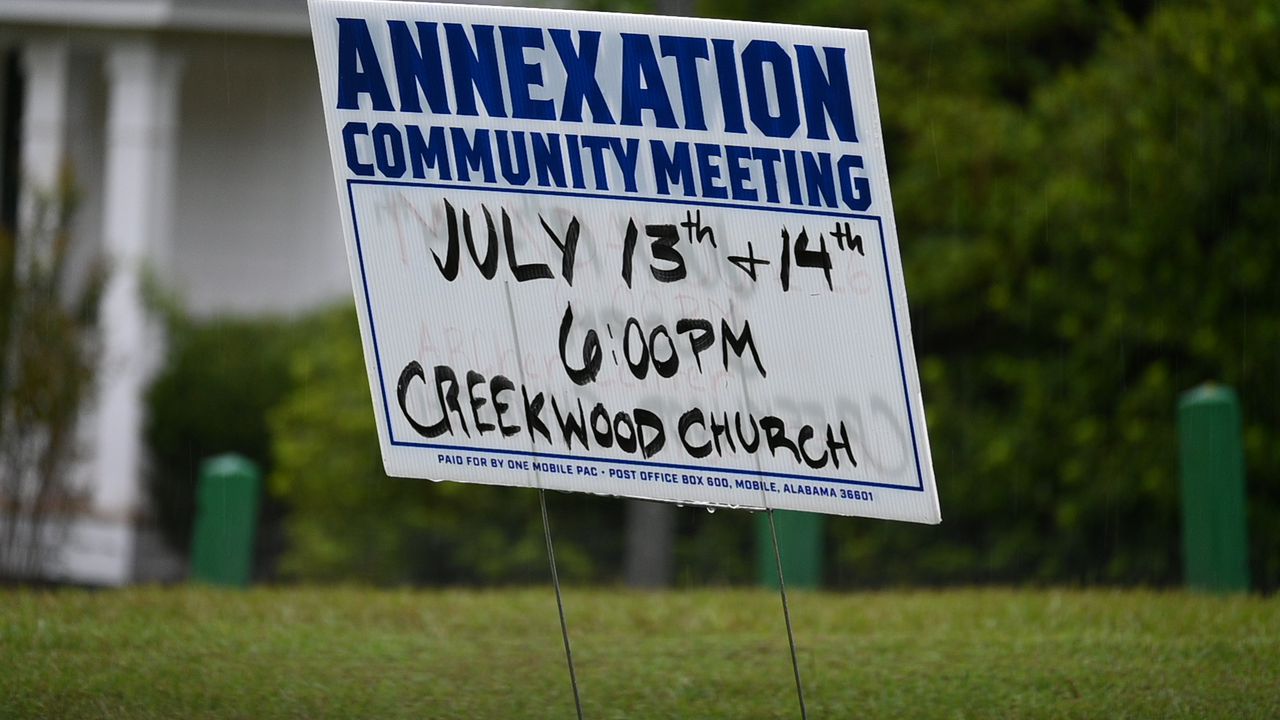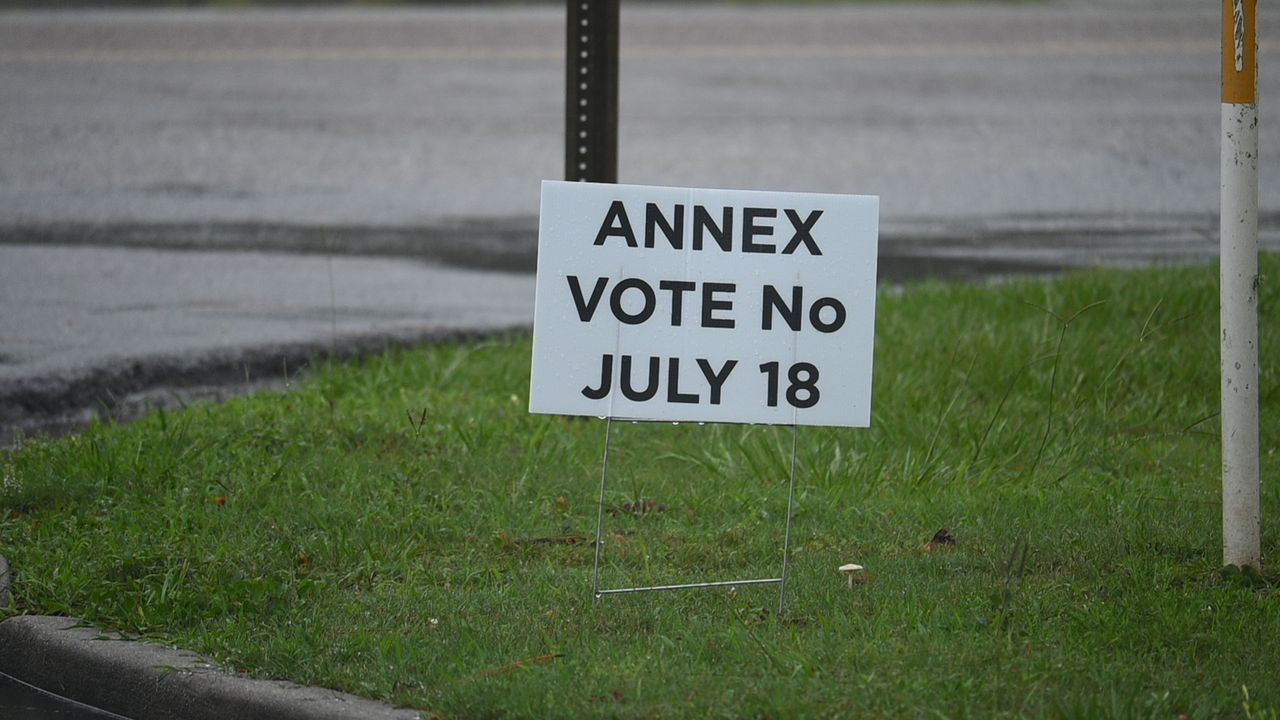Anti-LGBTQ, social issues animate Mobileâs annexation election
An anti-LGBTQ billboard linked to Mobile’s annexation vote recently surfaced on Airport Boulevard near Baker High School, sponsored by a group called Faith Family Freedom Coalition Metro Mobile.
Here’s what we know:
- Martin Scott Catino is the group’s spokesman, but he has declined certain media interviews and has not responded to AL.com for requests for comments. On FM Talk 106.5, Catino blasted Mobile Mayor Sandy Stimpson’s administration for backing the appointment of LGBTQ liaisons and for having Diversity, Equity and Inclusion policies.
- Faith Family Freedom Coalition Metro Mobile is not registered as a political action committee with the Alabama Secretary of State’s Office, the state agency confirmed on Wednesday. If the group is spending more than $1,000 to campaign on an issue, it has to register with the office. The Secretary of State’s office, however, says it “does not have prosecutorial powers when it comes to potential violations” of the state’s Fair Campaign Practices Act.
- The West Mobile Annexation Committee, a pro-annexation group, argues that Catino’s arrival to the campaign has only been recent and that he is utilizing social issues to bolster his own future political aspirations.
A sign urging voters to “Vote No” on annexation during Mobile’s special election on Tuesday, July 18, 2023. (John Sharp/[email protected]).
Why is there opposition?
Catino, during an appearance on a talk radio show Wednesday, said he felt the social issues were “inseparable” from the economic issues of annexation. He criticized Stimpson for having LGBTQ liaisons to boost the city’s Municipal Equality Index gauged by the Human Rights Campaign. The liaisons were appointed last year and have since held a few meetings about their plans. Catino also ripped the mayor for DEI policies, which he likened to supporting Marxism.
Behind the scenes:
Opposition to the LGBTQ community surfaced in Mobile last month, mostly by pastors in west Mobile including some who oversee churches in the areas that could be annexed. A letter signed by 43 pastors was submitted to the city in late June arguing that government leaders should not use public resources to promote ideologies “that fundamentally oppose the beliefs of vast numbers of their constituents, especially sexually-focused activities and events in public places where children may be in jeopardy.” Their concern mainly focused on an LGBTQ Pride-themed Art Walk last month.
Big picture:
The special election on Tuesday involves four areas west of Mobile’s corporate limits. They include: Airport Corridor Area, Cottage Hill Corridor, Kings Branch Area, and Orchard Estates Area. The maps of each area have been posted to AL.com. If a majority in each of the four areas support annexation, 25,803 residents west of Mobile’s city limits will almost automatically become city residents.
What it all means:
The annexation of such a large number of residents — 25,803, or slightly more than the City of Fairhope in Baldwin County — would propel Mobile to the No. 2 largest city in Alabama trailing only fast-growing Huntsville. Mobile’s current population, according to the latest Census estimates, is 184,952. Birmingham (197,575) and Montgomery (198,665) are larger.

A campaign sign paid for by the One Mobile PAC advertises forthcoming community meetings on annexation on July 13 and 14, 2023, at Creekwood Church in west Mobile, Ala. (John Sharp/[email protected]).
Want to learn more?
Two meetings will be held to inform voters about the details of annexation. They will take place at 6 p.m. Thursday and Friday at the Creekwood Church of Christ, 901 Schillinger Road S., Mobile. The election runs from 7 a.m. to 7 p.m. on Tuesday. Only voters in the affected areas have a chance to decide if they want to be annexed into the city. It’s a simple “Yes” or “No” vote.
Read more about annexation:
